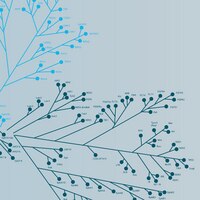Mechanism of constitutive phosphoinositide 3-kinase activation by oncogenic mutants of the p85 regulatory subunit.
Shekar, S Chandra, et al.
J. Biol. Chem., 280: 27850-5 (2005)
2005
Show Abstract
p85/p110 phosphoinositide 3-kinases regulate multiple cell functions and are frequently mutated in human cancer. The p85 regulatory subunit stabilizes and inhibits the p110 catalytic subunit. The minimal fragment of p85 capable of regulating p110 is the N-terminal SH2 domain linked to the coiled-coil iSH2 domain (referred to as p85ni). We have previously proposed that the conformationally rigid iSH2 domain tethers p110 to p85, facilitating regulatory interactions between p110 and the p85 nSH2 domain. In an oncogenic mutant of murine p85, truncation at residue 571 leads to constitutively increased phosphoinositide 3-kinase activity, which has been proposed to result from either loss of an inhibitory Ser-608 autophosphorylation site or altered interactions with cellular regulatory factors. We have examined this mutant (referred to as p65) in vitro and find that p65 binds but does not inhibit p110, leading to constitutive p110 activity. This activated phenotype is observed with recombinant proteins in the absence of cellular factors. Importantly, this effect is also produced by truncating p85ni at residue 571. Thus, the phenotype is not because of loss of the Ser-608 inhibitory autophosphorylation site, which is not present in p85ni. To determine the structural basis for the phenotype of p65, we used a broadly applicable spin label/NMR approach to define the positioning of the nSH2 domain relative to the iSH2 domain. We found that one face of the nSH2 domain packs against the 581-593 region of the iSH2 domain. The loss of this interaction in the truncated p65 would remove the orienting constraints on the nSH2 domain, leading to a loss of p110 regulation by the nSH2. Based on these findings, we propose a general model for oncogenic mutants of p85 and p110 in which disruption of nSH2-p110 regulatory contacts leads to constitutive p110 activity. | 15932879
 |
Identification and characterization of a new oncogene derived from the regulatory subunit of phosphoinositide 3-kinase.
Jimenez, C, et al.
EMBO J., 17: 743-53 (1998)
1998
Show Abstract
p85/p110 phosphoinositide 3-kinase (PI3K) is a heterodimer composed of a p85-regulatory and a p110-catalytic subunit, which is involved in a variety of cellular responses including cytoskeletal organization, cell survival and proliferation. We describe here the cloning and characterization of p65-PI3K, a mutant of the regulatory subunit of PI3K, which includes the initial 571 residues of the wild type p85alpha-protein linked to a region conserved in the eph tyrosine kinase receptor family. We demonstrate that this mutation, obtained from a transformed cell, unlike previously engineered mutations of the regulatory subunit, induces the constitutive activation of PI3K and contributes to cellular transformation. This report links the PI3K enzyme to mammalian tumor development for the first time. | 9450999
 |










